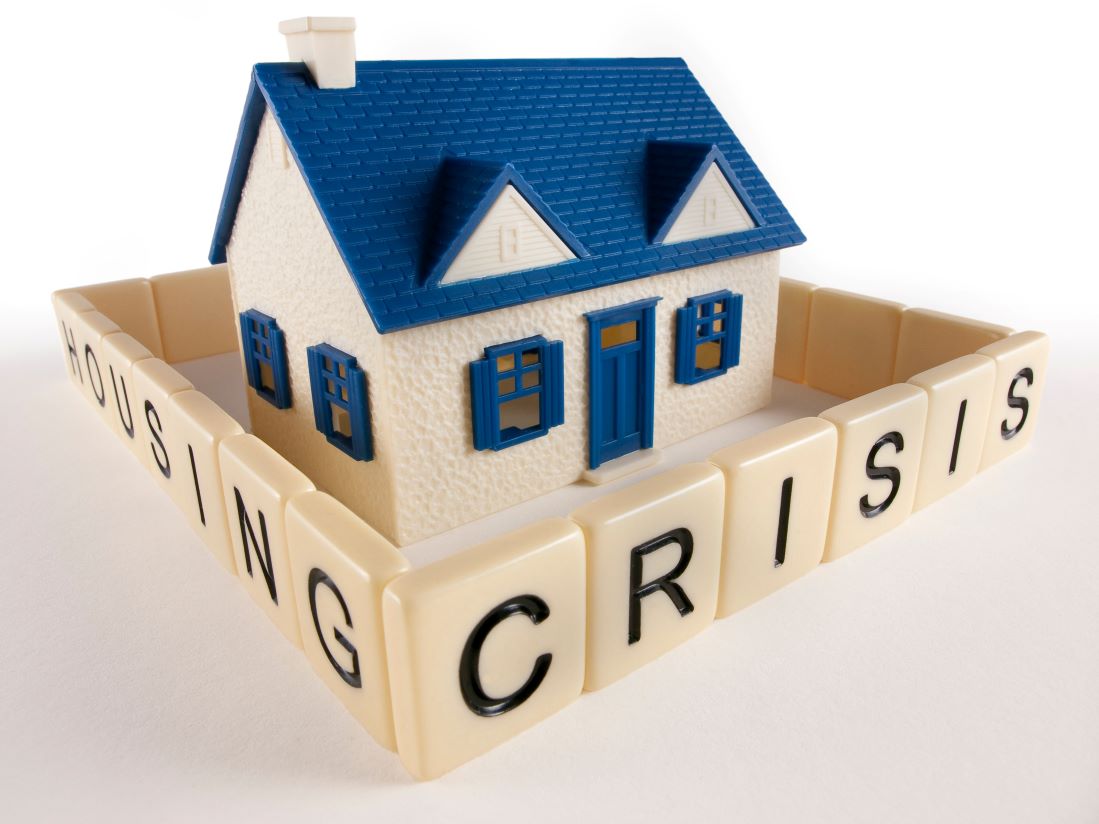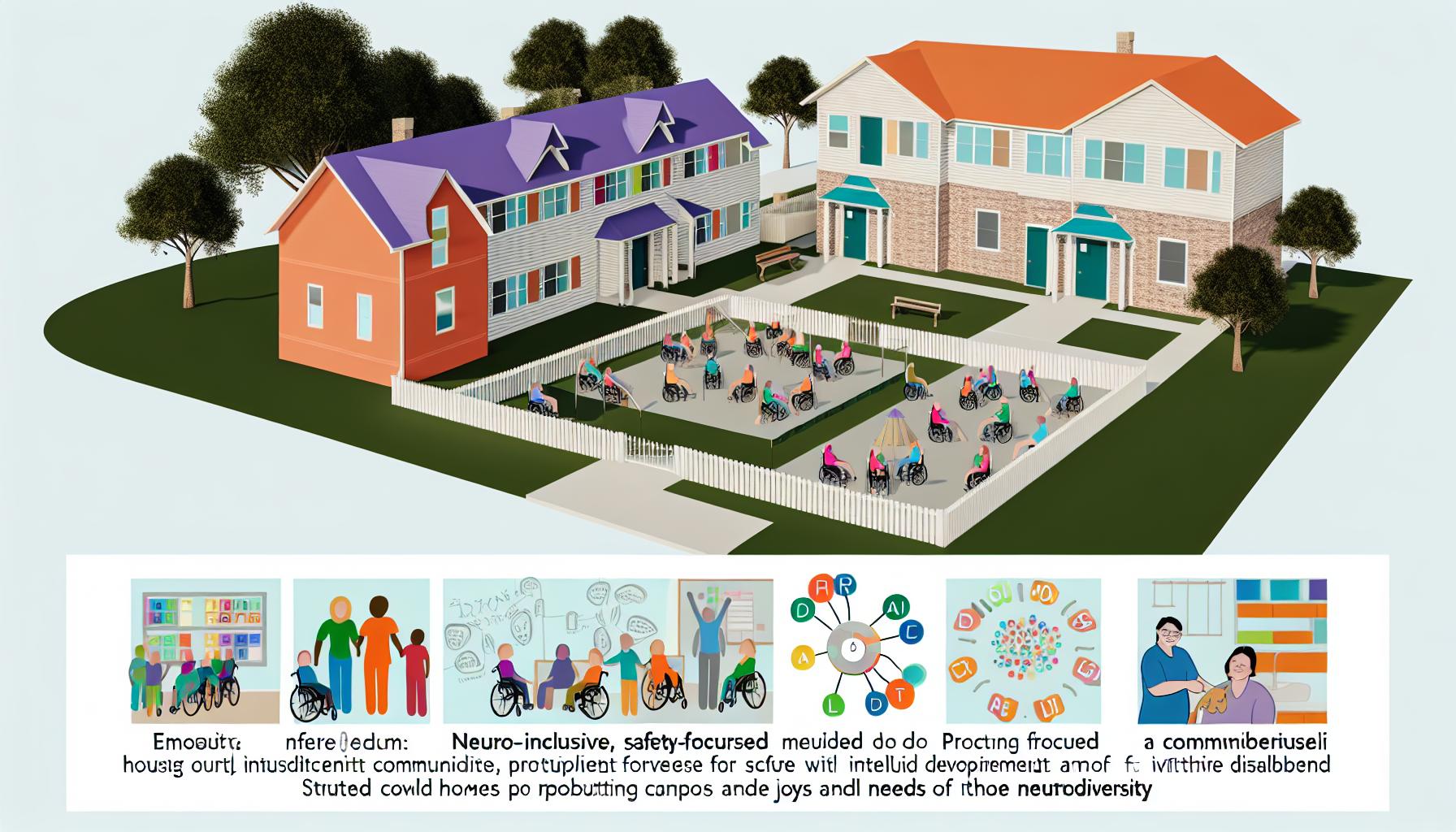The Housing Dilemma for Adults with Autism
 Jim Richardson
·
4 minute read
Jim Richardson
·
4 minute read
In order to meet the current and future demands for housing, we need to look outside the box at new and innovative concepts in housing models to find a solution to the housing dilemma for adults with autism.
On World Autism Awareness Day, Jim Richardson, discusses the housing dilemma for adults with autism
It’s no surprise that there’s a massive housing dilemma for adults with autism and others with intellectual developmental disabilities. Some people with disabilities require care, attention, and comfortable living accommodation to allow them to live their lives to the absolute fullest. This housing crisis continues to develop and grow over the years, with not much in the way of solutions – until now.
Here at Front Porch Cohousing, we’re providing a workable future for safe, lifelong living and scalable housing options for those with autism spectrum disorder (ASD) and other intellectual and developmental disabilities (IDD). Before reviewing our approach to the solution, it’s essential to address the challenges that exist across the United States.
The Numbers Continue to Increase
Being a parent of an adult with ASD or other IDDs is challenging and fraught with isolation, frustration, fear, and exhaustion. That’s true for both the individual with ASD/IDD and the parents who care for them. Every 11 minutes, someone is diagnosed with autism in the US. Almost 6.5 million people in the US, or 3 per cent of the total population, have IDD. And every year, that population of adults with ASD grows by 50,000.
The problem lies in the availability of practical housing alternatives for individuals with ASD/IDD as they transition from adolescence to adulthood and ultimately to senior citizens. While symptoms of autism can change over time, and the individual may learn to manage their symptoms, there is no cure for individuals with ASD/IDD, and they do not typically outgrow the disorder. That means that many are challenged to get jobs, learn independent skills such as finances, cooking, and effectively managing personal hygiene for the duration of their lives. While some may live independently, most individuals with ASD/IDD require some level of ongoing supervision and care. A US study found that only 17 per cent of adults with autism between 21 and 25 have lived independently.
Unfortunately, while there are institutions licensed to care for people showing severe signs of ASD/IDD, many families either can’t afford the ongoing cost or can’t bear the thought of surrendering their child to facilities like these. Also, many adults with ASD/IDD don’t require such a high level of care. So many families choose to keep their child at home well into adult life. Eventually, the parent passes or becomes incapable of adequately caring for their grown child without a housing or transition plan. When this happens, the adult child loses everything they know — their parent/caregiver, home, and entire life.
Housing Dilemma For Adults With Autism
A CDC report in May 2020 states “that without access to affordable housing in their community or the support to live in their own home, adults with autism are at risk of homelessness or displacement from their community. They may be placed in the next empty bed of a group home or adult foster care that could be hundreds of miles away from their hometown.”
Desiree Kameka, Director of the Autism Housing Network, stated: “We know from the contacts made through our website that there is a large percentage of autistic adults already experiencing homelessness. Due to social and communication impairments, many can’t get past an in-person job interview, and thus they can’t afford housing. They experience a crisis when their parents pass away as they find themselves without support with the upkeep of everyday life. They often fall victim to mate-crime or predatory/abusive relationships.”
The Government Provides Services, Not Solutions
The largest developmental and intellectually challenged special needs group is Autism. At least 500,000 children with autism will become adults with autism by 2025. Current service systems in the US aren’t adequate to address the needs of this emerging population. It also means that half a million families will need to navigate the residential care network in hopes of finding their adult child adequate housing – 87 per cent of the population with autism live in the family home, and 35 per cent require 24-hour support.
What happens when the parents are no longer able to care for their child? The reality is that these families have very few practical choices.
Schools are mandated to try meeting the needs of children with neurodiversities until the age of 22. However, after they pass that threshold, the responsibility falls on the their parents or caregivers to figure out how to provide services for the child, leaving them with few resources.
There is a dire need for new housing models that don’t require institutionalization but may require some level of continuous supervision and case management.
The Front Porch Cohousing Difference
Front Porch Cohousing (FPC) is a new and exciting 501C3 nonprofit organization designed to provide adults living with autism or other IDDs with independent housing alternatives based on their support needs. This specialized housing creates an environment where they can thrive and become members of their local community. Our goal is to provide this underserved population safe and sustainable options for neuro-inclusive housing with the same opportunities in life as their neurotypical peers.
Children typically outlive their parents, and that’s the same for children with autism. Our neuro-inclusive communities will offer families a sense of comfort, knowing that their child will have a permanent and safe place to live indefinitely. Serving as a lifelong advocate for their child will be a game-changer for these parents and for the adult children they love so much.
What We Need to Succeed
Front Porch Cohousing by NDL is ready to blossom into a full fledged community for people with different intellectual abilities. We’re looking not only for scattered-site single-family, duplex, or small apartment structures across Pennsylvania in need of light renovation but the property and land on which to build new, neuro-inclusive cohousing communities.
Corporate sponsors can help us with the funds necessary to buy and develop the property, fund inspections, make renovations to create unique supportive housing solutions by combining smart-home technology, intentional sensory-friendly design strategies, and built-in supports. Because we’re a tax-exempt charity, donors who have property or structures they no longer need can receive substantial tax-deductions by donating it to us for this critical charitable use. We also accept gifts of stock. When you make a gift of stock, you can claim a charitable deduction equal to the value of the stock on the day of your gift and avoid capital gains taxes you might pay if you sold it. That’s a win-win in our book.
As FPC moves forward with plans for building our neuro-inclusive cohousing communities, we are also looking for people who not only may want naming rights but understand the need for long-term funding and would consider putting FPC in their will and estate plan. In that way, we can guarantee safe and secure lifelong living arrangements for individuals with ASD/IDD as they transition into adulthood.
Ways You Can Help Fix The Housing Dilemma
There are several ways you can help change the life of an adult with autism – click HERE to learn how.



